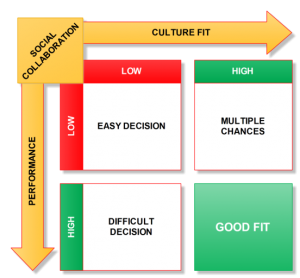Group social skills have conquered the earth (and will continue), said 82-year old Harvard professor Edward O. Wilson a few days ago at a talk I attended through the Long Now Foundation. This idea prompts me to think about several implications for businesses and other organizations which I mention below.
Wilson is a very esteemed biologist that I won’t be able to do justice, so here’s a bio. Let’s just say that he is probably the most influential biologist today. First, here are some things that I found interesting in his talk. Often, big concepts seem sort of obvious when communicated well, but nonetheless have been difficult for people to grasp before they are framed well. I found that true with his talk.
- Survival/selection of the fittest individuals is a well understood concept in evolution. In addition, biologists have been attempting to explain why some organisms are altruistic in that they take actions not in their own self-interest but in a group’s self interest. For several decades, scientists thought it had something to do with helping related organisms through a concept called kin selection. Wilson, with some Harvard mathematicians, have proven that the math of kin selection does not hold up (even though he was once a proponent).
- Now, Wilson is saying that an evolutionary concept of “group selection” is an evolutionary force maybe more powerful than individual selection. Basically, groups survive well that socially cooperate and collaborate.
- Species that socially collaborate have dominated the earth — ants and humans in particular. Thus, the title of his book The Social Conquest of Earth. He mentioned that ants make up a huge percentage of the earth’s biomass in some areas.
- Individual selection engenders selfish behavior and group selection engenders cooperative behavior — these two evolutionary forces are in constant flux and contradiction. Wilson said this will always be “unstable and incapable of final resolution.”
- Humans are amazing at forming, reforming, and disbanding groups constantly. It is almost such an obvious part of being human that it is not discussed much in science. Nonetheless, he suggests this is a unique part of being human versus other types of animals and one of the primary reasons that humans have become so dominant.
- Evolution is really “multi-level selection” where individual and group selection move forward together.
- Wilson’s ideas also reminded me of ideas in Matt Ridley’s book The Rational Optimist: How Prosperity Evolves where he speaks about the huge advantages that humans gained when they discovered the benefits of the division of labor and how this continues today in increasing standards of living around the world.
 For companies and organizations, I think it spawns some interesting things to think about:
For companies and organizations, I think it spawns some interesting things to think about:
- Organizations balance the selection between individuals and the group (company culture) differently. Some organizations emphasize star performers and a star culture, even if those stars contradict the stated values and culture of the organization. Other organizations reject all people that contradict the culture regardless of how talented they are. Most are somewhere in between, but I tend to favor organizations with a strong sense of culture and the guts to remove star performers that don’t fit with the company culture. Which do you prefer?
- Countries and societies are also different. Some emphasize individual rights (the U.S.) and some emphasize the importance of the group or society (Japan or Europe). It is helpful for an organization to think about the cultures in which it operates and how that society balances individual selection versus group selection.
- Business owners are in a constant state of debate with themselves about how much of the spoils of the enterprise to share (sometimes it helps group collaboration) and how much to retain to optimize the organizations performance. As with most things, the right answer is probably different for every organization. Nonethless, it may help to think about how much your company emphasizes individual selection vs group selection.
I am off to buy Wilson’s book — I can guarantee it will be thought-provoking based upon his talk.


 I am an investor at Greybull Stewardship, an
I am an investor at Greybull Stewardship, an 
 Sign Up
Sign Up RSS Feed
RSS Feed
By Use Exchange to Increase Business and Personal Prosperity July 12, 2012 - 5:02 am
[…] Survival of the Social-Collaboratist, April 23, 2012 […]
By 50th Post Since April -- How am I doing? - Mason Myers Blog September 20, 2012 - 7:49 pm
[…] Survival of the Social Collaboratist [April 23, 2012] after a talk by Edward O. Wilson about how groups that socially collaborate do well. Many lessons for building and managing a successful business. […]
By Business Growth Strategy, Opportunities | Growing Enterprise | Mason Myers Business Blog for Business Owners, Investors December 19, 2012 - 3:26 pm
[…] Survival of the Social Collaboratist [April 23, 2012] […]
By Employee Ownership, Business Owners | Phantom Stock Options, Shadow Stock, Virtual Stock | Mason Myers Blog August 15, 2013 - 12:08 pm
[…] Science Says ‘Social Collaboratists’ are the Most Successful [April 23, 2012] Categories:Business Financing & Funding, Culture Is Strategic, Employee Ownership (a series), Execution, Investment & Business ModelsTags:Culture, Employee Ownership, Financial Results, Financial Strategy, Financing, HR, Human Resources, Phantom Stock, Profit Sharing, Shadow Stock, Stock Options, Virtual Stock /* […]